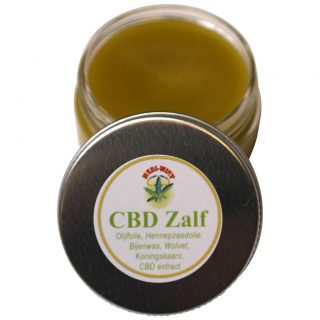
Derived from the Cannabis plants (marijuana or hemp), both Cannabidiol (CBD) and Tetrahydrocannabinol (THC) are two of the most talked-about organic compounds. Cannabis plants have more than 100 natural compounds called cannabinoids but these 2 are the most prominent ones because of their potential therapeutic properties. They have become all the more popular since the legal sale and use of CBD products became possible in 2018. Though both CBD and THC can be sourced from either marijuana or hemp plants, we get more THC from marijuana. The hemp plant, on the other hand, is high in CBD content. CBD and THC differ greatly in many ways but the most important distinction comes in their intoxicating properties, says Charlie Thompson- an expert cannabis botanist and a Chief Editor at Divine Hemps. CBD has no intoxicating effects at all while THC is the very compound that causes the feeling of ‘high’ on consuming marijuana.
- Chemical Structure
The chemical formula for both THC and CBD is the same as both have 21 carbon atoms, 30 hydrogen atoms, and 2 oxygen atoms. However, the way these atoms are arranged in each of these compounds is different, which changes their properties. Both the compounds interact with our body’s endocannabinoid system (ECS) through the cannabinoid receptors. This system is responsible for maintaining many physiological functions like sleep, reproduction, memory, etc. The ECS plays a crucial role in maintaining a healthy body and brain.
- Psychoactive Properties
It’s not that CBD is not psychoactive. It’s just not intoxicating and has a different psychoactive mechanism. It will not make you high but may help with anxiety, insomnia, and pain. THC, on the other hand, is highly intoxicating. THC readily binds with the CB1 receptors of the endocannabinoid system in the brain which results in the euphoric sensation. CBD attaches (if at all) very weakly to the CB1 receptors. It depends on the bonding of THC with the CB1 receptors to take effect and even reduces some of the intoxicating effects of the THC. It also works with other (yet unknown) elements in our body to maintain our well-being.
- Medical Benefits
Both THC and CBD share many therapeutic properties but CBD comes with no euphoric feeling. Depending on your choice, you may go for either. Following are the prominent potential benefits of CBD-
- Treats certain rare childhood epileptic conditions; Epidiolex is an FDA-approved oral spray for the same.
- May help with inflammatory bowel disease.
- Might treat seizures.
- Helpful in psychosis or some mental disorders (like OCD and PTSD).
THC has potential therapeutic uses in treating- glaucoma, insomnia, muscle spasticity, and loss of appetite. And finally, there are certain conditions (like nausea, anxiety, and pain) that may benefit from either of these 2 compounds. It is important to note that CBD and THC work together to give entourage effect and enhance each other’s beneficial effects. This is why full-spectrum CBD products like CBD tincture or CBD-containing pain-relief cream with some THC content are better for some conditions than CBD isolates that lack THC.
- Legal Status
Technically speaking, CBD comes under the Schedule I drugs category under federal law because it is derived from cannabis. However, in 2018, Hemp-based products have been taken out from the Controlled Substances Act and made federally legal. Additionally, 34 states have their own cannabis-related laws which make products with high THC content unfit for medical use but the ones with a lower quantity of THC can be prescribed by doctors. Some states allow for the recreational use of marijuana while others don’t. There are some rules regarding their purchase and sale like that they cannot be sold on the state borders. So, you must know the laws of your own state before you buy or sell cannabis products.
- Side Effects
Both CBD and THC can have certain ill effects if you overdose on them. But CBD is known to be a more well-tolerated compound than THC. THC can cause-
- Fogginess/ reduced concentration
- Dizziness
- Anxiety
- Nausea or vomiting
- Affect memory
- Increased heart rate
- Dry mouth
- Disturb balance within the body
Also, excessive THC use may lead to negative psychiatric effects in the long term. Side effects of CBD include-
- Diarrhea
- Nausea
- Low blood pressure
- Weight loss
- Exhaustion
- Crankiness
- Drug Testing
Both THC and CBD (and other cannabinoids) are stored in the body fat which makes them possible to be detected even weeks after consumption. Though CBD is not detectable through many drug tests, separate tests for CBD exist. Also, the full-spectrum CBD products contain (less than 0.3%) THC which can be detected in a drug test. Therefore, it is important that you know all the contents of the products you are using and if you have a drug test scheduled, it’ll be better to not use these products a few weeks prior to it.
Takeaway
Both CBD and THC are natural cannabinoids and have therapeutic properties but the former lacks any intoxicating effects. THC is well-known for the marijuana-related high and should be used accordingly. The legal rules of your state should also be kept in mind. Talking to your doctor before taking any CBD or THC products is important, especially if you already take any other medication. There are multiple ways of consuming both, you may vape, take them in edible forms like gels and cbd gummies, or topically apply them as creams and lotions. Use them according to your need and taste.
References
https://www.healthline.com/health/cbd-vs-thc#side-effects
https://www.medicalnewstoday.com/articles/325871#takeaway
























